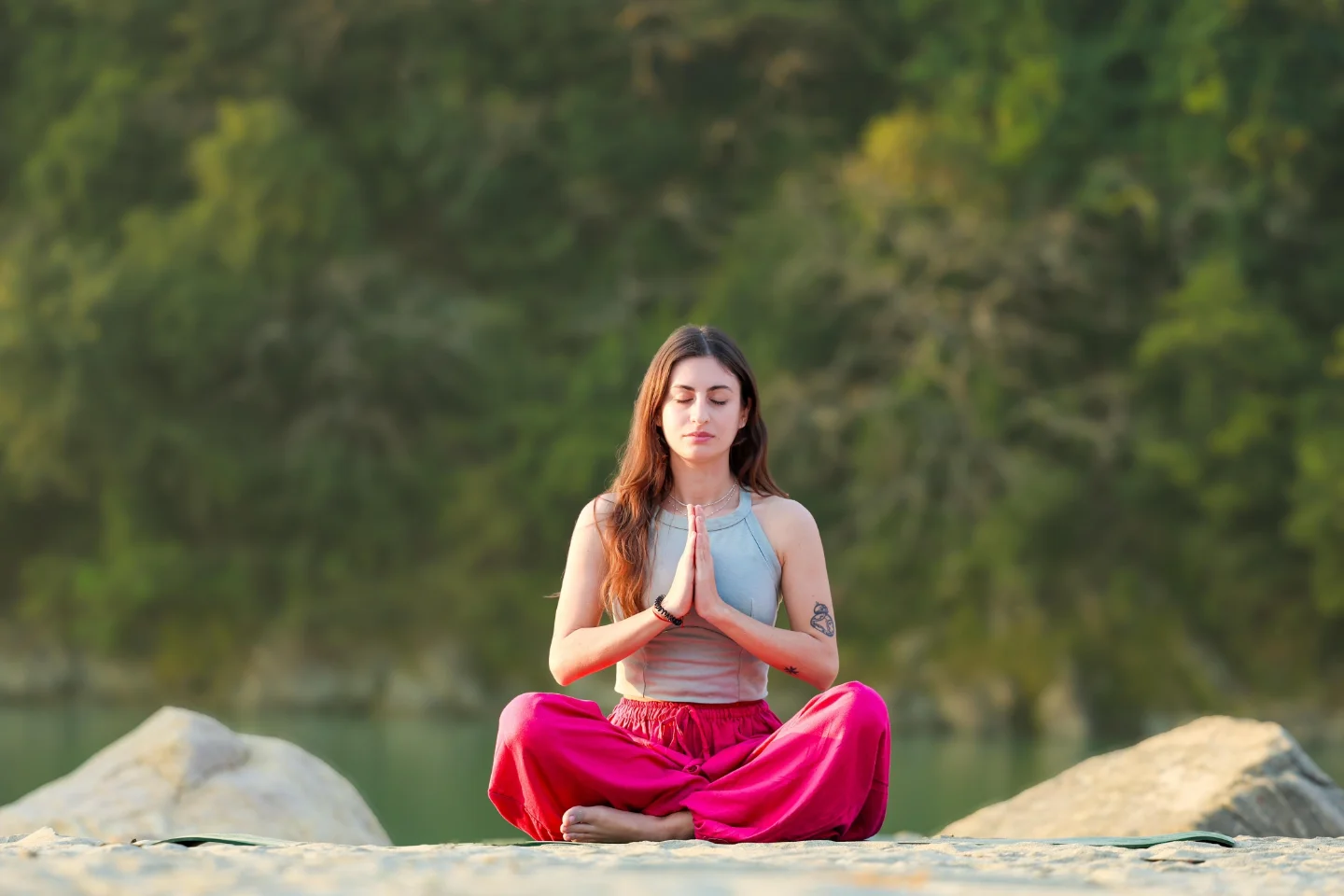When Is the Best Time to Roll Out Your Mat?
If you’ve decided to add yoga to your daily routine, you might be wondering: Should I practice in the morning or in the evening? The short answer? Both times have unique benefits—and the best time depends on your goals, schedule, and lifestyle.
Yoga isn’t a one-size-fits-all practice. Whether you’re craving energy and clarity to kickstart your day, or peace and relaxation to wind it down, yoga can be tailored to meet you where you are. Let’s break down the advantages of morning vs. evening yoga so you can choose the time that serves you best—or maybe even enjoy both!
1. Benefits of Morning Yoga
1.1 Boosts Energy and Mental Clarity
A few sun salutations in the morning can be more energizing than a double espresso. Morning yoga increases blood flow, awakens your nervous system, and sharpens your focus.
What You’ll Feel:
- Reduced brain fog
- Sharper concentration
- Improved productivity throughout the day
1.2 Enhances Mood and Positivity
Starting your day with mindful movement and breathwork sets a positive tone. You’ll feel centered, grounded, and emotionally balanced before the daily chaos kicks in.
Extra Bonus: Morning yoga lowers cortisol (stress hormone) levels, helping you stay calmer in stressful situations.
1.3 Builds Long-Term Discipline and Consistency
Morning routines are easier to stick to because they’re less likely to be interrupted by distractions. Practicing yoga first thing helps anchor your day.
Helpful Tip: Lay your mat out the night before and schedule your session like an appointment.
1.4 Ideal for Physical Goals
Morning yoga is great for those who want to:
- Improve strength
- Increase flexibility
- Lose weight
Because your body is fresh and your metabolism is waking up, morning yoga gets things moving and burns calories more efficiently.
2. Benefits of Evening Yoga
2.1 Reduces Stress and Tension from the Day
Evening yoga is like hitting the reset button. After a long, mentally and physically demanding day, it helps release muscle tension and mental clutter.
Common Outcomes:
- Relaxed shoulders and back
- Calmer nervous system
- Better digestion and sleep
2.2 Promotes Better Sleep
Evening yoga—especially calming styles like yin or restorative yoga—activates the parasympathetic nervous system. This tells your body it’s safe to rest.
Best Poses Before Bed:
- Legs-Up-The-Wall
- Reclined Butterfly
- Forward Folds
- Savasana with deep breathing
Skip intense flows at night—opt for slower, deeper movements to help your body fully unwind.
2.3 Enhances Mind-Body Awareness
Evening practice allows you to reflect on the day, reconnect with your body, and process emotions. It’s a perfect transition from “doing” to simply being.
Mindful Evening Practices:
- Journaling after yoga
- Breathwork and meditation
- Setting intentions for tomorrow
3. Morning vs Evening Yoga: Side-by-Side Comparison
| Aspect | Morning Yoga | Evening Yoga |
|---|---|---|
| Energy | Boosts energy for the day ahead | Relieves fatigue and calms the body |
| Focus | Improves mental clarity | Helps you let go of daily stress |
| Mood | Starts the day with positivity | Encourages peace and gratitude |
| Physical Benefits | Enhances strength and flexibility early | Releases tightness from daily activity |
| Sleep Quality | Indirectly benefits by lowering stress | Directly improves sleep and relaxation |
| Consistency | Easier to schedule and stick to | Can be harder to stay committed to |
| Best For | Energizing, weight loss, morning routine | Relaxation, stress relief, better sleep |
4. When Should You Do Yoga? Find What Fits
Ask Yourself:
- Do you feel stiff in the morning? Morning yoga can help you loosen up.
- Are your evenings stressful or busy? Evening yoga might bring relief.
- Do you have more energy early or late in the day?
- Are you trying to sleep better or feel more energized?
Make It Personal
- Morning Person? Opt for energizing flows.
- Night Owl? Wind down with gentle stretches.
- Super Busy? Even 10 minutes anytime is better than none.
The “best” time is when you’ll actually do it.
5. Can You Do Both? Absolutely.
Many people benefit from doing short sessions in both the morning and evening. A quick 10-minute flow in the morning and a calming stretch at night can create a beautifully balanced day.
Sample Daily Routine:
- Morning: 10-min Sun Salutations + Breathwork
- Evening: 15-min Yin Yoga + Meditation
This approach keeps your body energized and your mind grounded, giving you the best of both worlds.
Conclusion: The Best Time for Yoga Is the Time That Works for You
Whether you roll out your mat as the sun rises or just before bed, what matters most is consistency. Both morning and evening yoga offer powerful, life-enhancing benefits. The key is to choose a time that fits your lifestyle, your body’s rhythm, and your personal goals.
Yoga is not about the hour—it’s about the habit. So test both, listen to your body, and create a practice that supports your unique life.
Just start. Your mat is waiting—morning, evening, or anytime in between.
FAQs
1. Can I switch between morning and evening yoga?
Yes! You can mix and match based on your schedule or how you’re feeling that day.
2. Is it okay to do yoga right after waking up?
Absolutely. Just take it slow and include some gentle warm-ups to avoid injury.
3. Can yoga replace a workout if done in the morning?
Yes. Power yoga or vinyasa flows can be a great alternative to traditional workouts.
4. What yoga style is best before bed?
Yin, restorative, or gentle Hatha yoga with breathwork is ideal for winding down.
5. Will doing yoga in the evening keep me awake?
Not if you avoid fast-paced or intense sessions. Gentle, slow yoga actually promotes deeper sleep.
